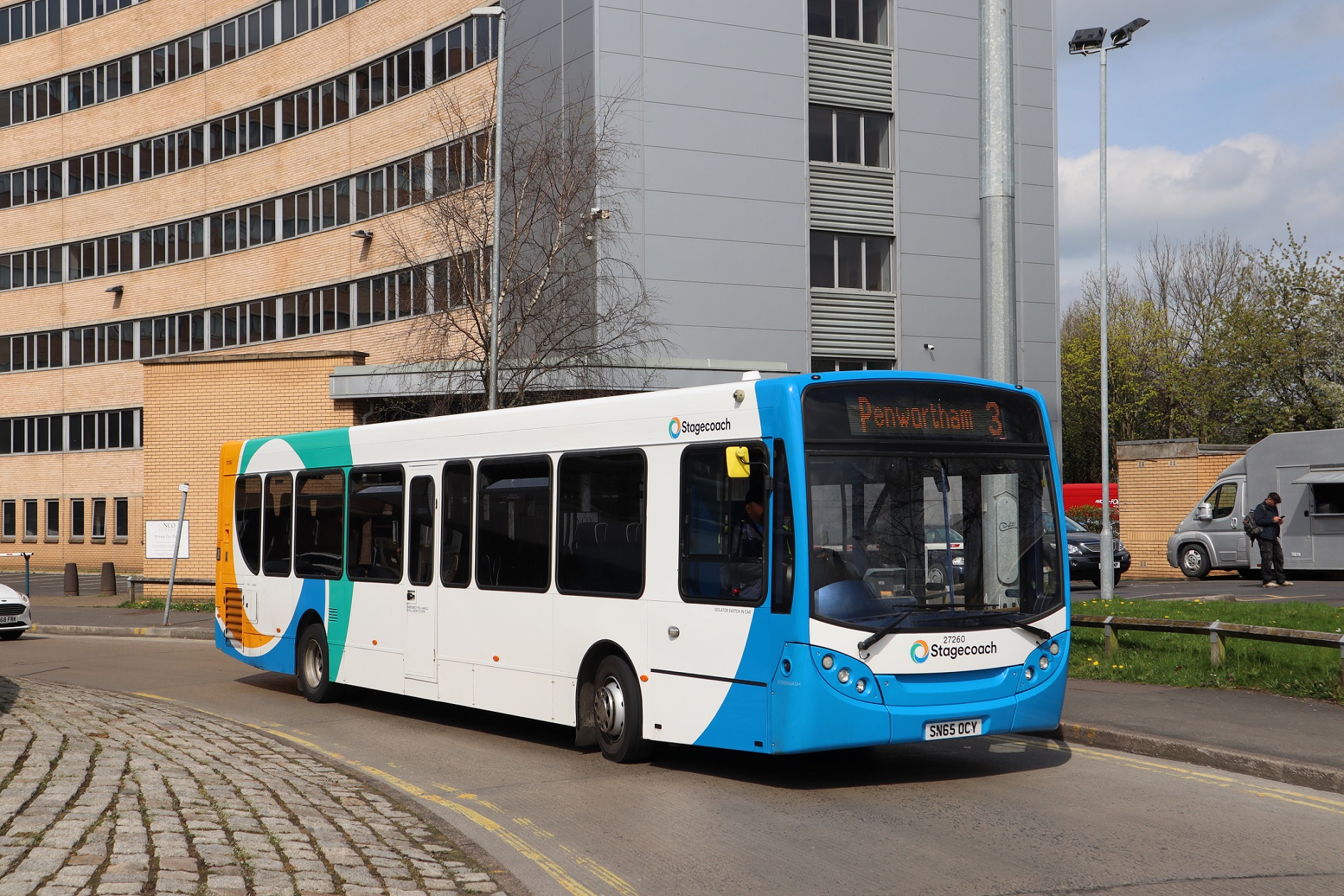Martin Griffiths’ departure from Stagecoach following the company’s acquisition by German asset management company DWS Infrastructure in 2022 makes me wonder if Stagecoach is in terminal decline, at least so far as the UK is concerned.
It no longer has a presence in the rail sector – although it could well make a return when the proposed Passenger Service Contracts finally come to market. And its failure to pick up one of the bus franchise contracts awarded so far by the Greater Manchester Combined Authority will have been a bitter blow, given that Greater Manchester has been an important market for Stagecoach for many years, if not decades.
Where does current landscape leave bus industry innovation?
I hope that Stagecoach bounces back. For me, the company is synonymous with the innovative and entrepreneurial spirit that bus service deregulation fostered – although it is worth reminding ourselves that the company was actually established in 1980, when the express coach market was deregulated.
In fact, a quick read of Wikipedia will tell you that Stagecoach’s roots go back as far as 1976, when Sir Brian Souter’s sister, Dame Ann Gloag, and her husband set up a small recreational and minibus hire business, Gloagtrotter.
I cannot help but feel that as it was always Sir Brian who was the driving force behind Stagecoach, as he increasingly stepped back from day-to-day control, so the business started to stutter. Stagecoach was Sir Brian Souter, and Sir Brian Souter was Stagecoach.
‘Quasi-nationalised’ bus industry now in place?
Of course, the bus and rail environment that we live in today is a million miles from the days of deregulation and privatisation, respectively. In part that is due to the consequences of the pandemic and the material drop in patronage that resulted. But the scope for private sector entrepreneurial flair and innovation was slowly being squeezed out of both sectors before the pandemic broke.
Train operating companies were increasingly working under highly prescriptive contracts set by the Department for Transport (DfT), while the National Bus Strategy for England effectively brought the curtain down on bus deregulation.
I wonder if Sir Brian would really have enjoyed being at the helm of Stagecoach in this new quasi-nationalised environment. Something tells me that he most certainly would not.
Short-term funding makes planning impossible
As I write, we are less than two months from the end of the current round of Bus Recovery Grant funding in England. Still we have no white smoke from either DfT or the Treasury on whether further support will be provided and, if so, at what level and over what timeframe.
How transport authorities and bus operators are to plan in this stop-start, short-term funding cycle is beyond me. I feel sorry for DfT officials, as they are all too well aware of the issues and the risks of serious cuts to commercial services in the absence of yet more subsidy being provided – but they cannot move until the Treasury, in its wisdom, has decided what to do.
And yet, it is those DfT officials on the front line that are in discussions with transport authorities and operators. I can well imagine that those talks are sometimes very uncomfortable.
Additionally, I have little doubt that whatever additional funding the Treasury finally agrees to – and surely it is going to have to give something – will be insufficient to maintain current service levels and that cuts will come.
Local taxpayers’ responsibility for some bus funding?
This is a timely moment to repeat something that I have said before. Bus services are fundamentally a local service. While they certainly make an important contribution to the wider economic and social fabric, I do not think that the national taxpayer should be expected to fund them in full.

A proportion of funding should come from local taxpayers through their council tax. It already does to a degree, but in a very indirect way.
If communities value their bus services, as we are repeatedly told they do, then a goodly proportion of the subsidy to keep these services running should come from local, not national, taxpayers.
Any increase in council tax to pay for maintaining bus service levels could be specifically identified and hypothecated for that purpose. If needs be, any uplift in council tax to do that could be put to a local referendum.
Apart from anything else, that would be a very democratic and pure way of testing the value that communities really do place on their bus services. If they are not willing to pay extra council tax to support a valued local service, then do not complain when that service gets cut.
Of course, national governments should make a material contribution to supporting bus services for obvious wider national and economic benefit. But the funding requirement should not fall exclusively on the national taxpayer.
Am I naïve in thinking that local authority councillors would be willing to increase council tax specifically to maintain bus service levels? Almost certainly. But to my mind, it is the right thing to do, although I fear that this approach will never gain favour.
Time to scrap the National Bus Strategy for England
Meanwhile, the best thing that DfT can do is scrap the National Bus Strategy for England and start afresh. It is blatantly obvious that the aspirations of the Strategy cannot be delivered. More to the point, I don’t think we yet know if there will be a second round of funding to support further Bus Service Improvement Plan (BSIP) bids, despite the Strategy saying that BSIPs should be updated annually.
The Bus Strategy is fast becoming an irrelevance. Withdraw it. Let’s have a fresh think about what bus policy in England outside London should look like, and what the most appropriate funding plan should be.
Clearly, decisions over ongoing funding support that DfT or the Treasury must take in the coming days and weeks are critical to the long-term viability of many commercial bus routes in England. If service cuts are coming, it will be interesting to see how ministers handle the political uproar that will follow.



























